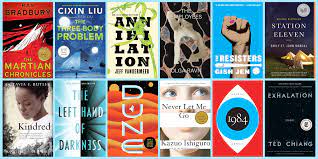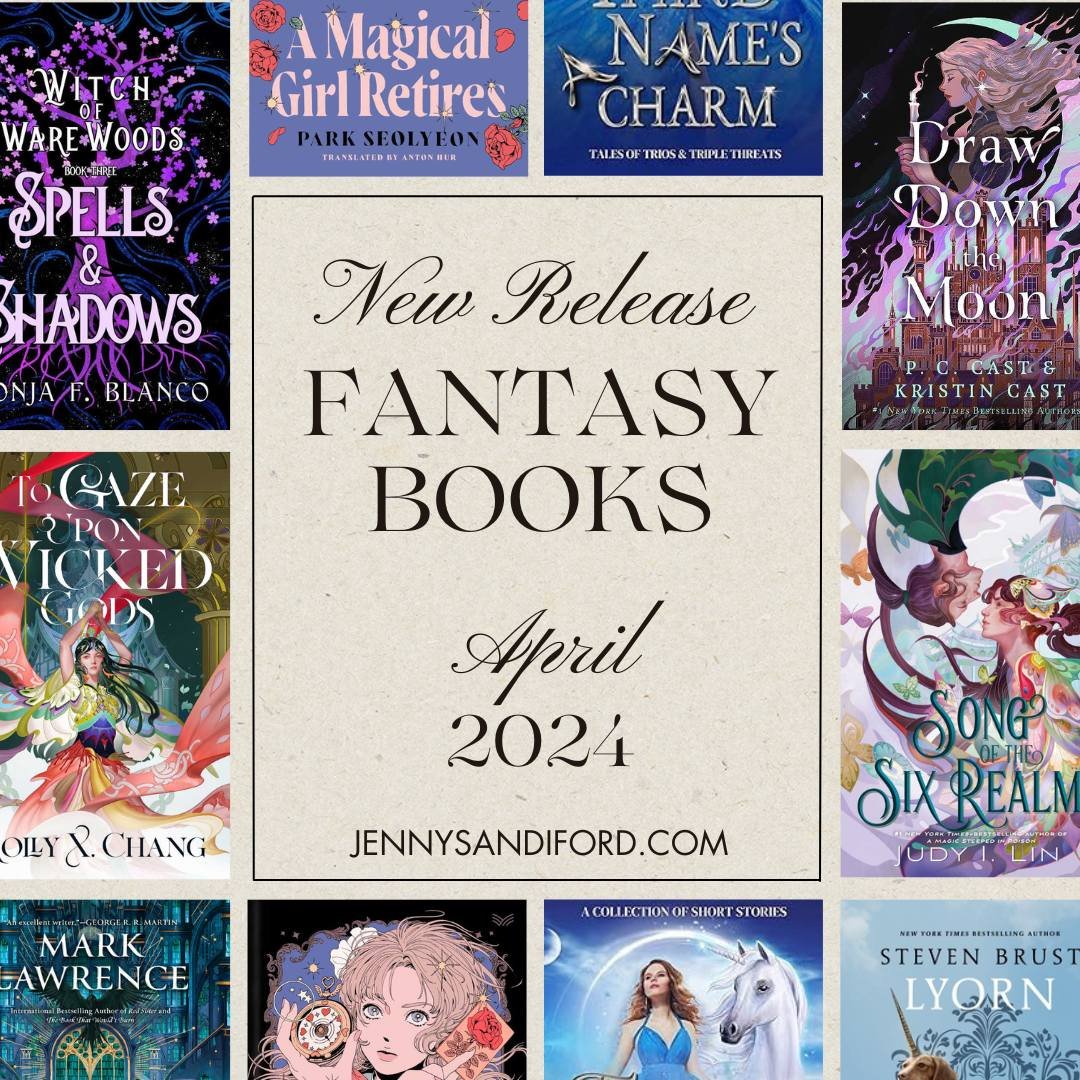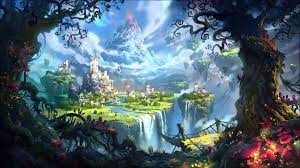The Fascinating World of Science Fiction Books
Science fiction, often abbreviated as sci-fi, is a genre that takes readers on thrilling journeys through imaginative worlds and futuristic scenarios. From dystopian societies to space exploration, science fiction books have captivated audiences for decades with their thought-provoking themes and innovative storytelling.
One of the defining features of science fiction literature is its ability to explore complex scientific concepts and speculate on the impact of technology on society. Authors delve into hypothetical scenarios that challenge our understanding of the universe and push the boundaries of human knowledge.
Classic science fiction novels like “1984” by George Orwell and “Brave New World” by Aldous Huxley have become timeless works that continue to resonate with readers today. These books offer cautionary tales about the dangers of totalitarianism and the loss of individual freedom, highlighting the enduring relevance of speculative fiction in addressing contemporary issues.
On the other hand, modern science fiction authors such as N.K. Jemisin, Ann Leckie, and Andy Weir have brought fresh perspectives to the genre with their innovative storytelling techniques and diverse characters. Their works challenge traditional narratives and introduce readers to new worlds filled with wonder and excitement.
Science fiction books also serve as a powerful medium for exploring existential questions about humanity’s place in the universe and our relationship with technology. Whether it’s contemplating the ethics of artificial intelligence or pondering the possibilities of interstellar travel, sci-fi literature encourages readers to reflect on what it means to be human in an ever-changing world.
In conclusion, science fiction books offer readers a gateway to explore limitless possibilities and contemplate profound ideas about the future. With its rich history and boundless creativity, this genre continues to inspire generations of readers to dream big and embrace the unknown.
Exploring the Cosmos of Imagination: Eight Essential FAQs on Science Fiction Literature
- What are some classic science fiction books that I should read?
- Who are some of the most influential science fiction authors?
- What are the key elements that define a science fiction book?
- Can you recommend any recent science fiction books that have received critical acclaim?
- How has science fiction literature evolved over the years?
- Are there any sub-genres within the broader category of science fiction books?
- What role does technology play in shaping the narratives of science fiction books?
- How do themes in science fiction books reflect contemporary societal issues?
What are some classic science fiction books that I should read?
When exploring the realm of classic science fiction literature, several timeless works stand out as essential reads for enthusiasts of the genre. From George Orwell’s dystopian masterpiece “1984” to Aldous Huxley’s thought-provoking “Brave New World,” these novels offer profound insights into societal structures and human nature. Isaac Asimov’s “Foundation” series is another must-read, known for its intricate world-building and exploration of futuristic civilizations. Additionally, Mary Shelley’s “Frankenstein” remains a seminal work that delves into themes of creation, responsibility, and the consequences of playing god. These classic science fiction books not only entertain but also challenge readers to contemplate the complexities of our world and the possibilities that lie beyond.
Who are some of the most influential science fiction authors?
When exploring the realm of science fiction literature, one cannot overlook the contributions of several influential authors who have shaped the genre with their visionary storytelling. From the pioneering works of Isaac Asimov, known for his groundbreaking Foundation series and iconic Three Laws of Robotics, to the imaginative worlds crafted by Philip K. Dick, whose thought-provoking narratives continue to challenge perceptions of reality, these writers have left an indelible mark on science fiction. Additionally, luminaries such as Ursula K. Le Guin, renowned for her exploration of gender and society in works like “The Left Hand of Darkness,” and Arthur C. Clarke, whose novel “2001: A Space Odyssey” redefined space exploration in popular culture, stand out as pillars of creativity and innovation within the genre. The enduring influence of these authors resonates across generations, inspiring readers to delve into the limitless possibilities of speculative fiction.
What are the key elements that define a science fiction book?
In exploring the question of what defines a science fiction book, several key elements emerge that distinguish this genre from others. Firstly, a science fiction book often revolves around speculative scientific concepts or futuristic technologies that play a central role in shaping the narrative. Themes of space exploration, time travel, artificial intelligence, and alternate realities are commonly found in science fiction literature. Additionally, the setting of a science fiction book is typically in a future or alternate world that differs significantly from our present reality, allowing authors to examine societal issues through a lens of imagination and possibility. Furthermore, strong world-building and attention to detail in scientific accuracy are essential components of a compelling science fiction story, creating immersive environments that transport readers to new and exciting realms of thought and discovery.
Can you recommend any recent science fiction books that have received critical acclaim?
For readers seeking recent science fiction books that have garnered critical acclaim, several standout titles come to mind. One notable recommendation is “The Three-Body Problem” by Liu Cixin, a gripping novel that explores humanity’s first contact with an alien civilization. Another compelling choice is “Recursion” by Blake Crouch, a mind-bending thriller that delves into the nature of memory and reality. Additionally, “The Power” by Naomi Alderman offers a thought-provoking take on gender dynamics and power structures through a speculative lens. These acclaimed works showcase the diversity and innovation present in contemporary science fiction literature, providing readers with captivating stories that push the boundaries of imagination.
How has science fiction literature evolved over the years?
Science fiction literature has undergone a fascinating evolution over the years, transforming from its early roots in speculative fiction to a diverse and dynamic genre that encompasses a wide range of themes and styles. Initially focused on technological advancements and futuristic scenarios, science fiction has evolved to explore complex societal issues, ethical dilemmas, and the human condition itself. Authors have pushed the boundaries of storytelling by incorporating elements of fantasy, horror, and even romance into their narratives, creating rich tapestries of imagination that captivate readers across generations. The genre’s evolution reflects not only changes in scientific knowledge and technological progress but also shifts in cultural attitudes and values, making science fiction literature a vibrant and ever-changing reflection of our world’s past, present, and future.
Are there any sub-genres within the broader category of science fiction books?
Within the expansive realm of science fiction books, there exist several intriguing sub-genres that cater to diverse interests and preferences. From hard science fiction, which focuses on scientific accuracy and technical details, to cyberpunk, a sub-genre that explores the fusion of technology and society, each category offers a unique lens through which authors can delve into futuristic worlds and speculative concepts. Other notable sub-genres include space opera, dystopian fiction, alternate history, and post-apocalyptic tales, each adding its own distinct flavour to the rich tapestry of science fiction literature. These sub-genres not only showcase the versatility of the genre but also provide readers with a wide array of narratives to explore and enjoy.
What role does technology play in shaping the narratives of science fiction books?
Technology plays a pivotal role in shaping the narratives of science fiction books by serving as a catalyst for exploring speculative scenarios and envisioning alternative futures. In many science fiction stories, technology is not just a backdrop but a central theme that drives the plot and influences the characters’ choices. From advanced space travel to sentient artificial intelligence, technology in these narratives serves as a lens through which authors examine the impact of scientific progress on society, ethics, and human nature. By extrapolating current trends and imagining innovative technologies, science fiction books challenge readers to consider the possibilities and consequences of technological advancements, sparking discussions about our relationship with innovation and the responsibilities that come with wielding such power.
How do themes in science fiction books reflect contemporary societal issues?
Themes in science fiction books often serve as a mirror to contemporary societal issues, offering a unique lens through which to examine and address pressing concerns of our time. By exploring hypothetical futures and alternative realities, science fiction authors have the freedom to delve into complex topics such as climate change, social inequality, technological advancements, and ethical dilemmas. These themes not only spark thought-provoking discussions but also challenge readers to consider the potential consequences of current societal trends and decisions. Through their imaginative storytelling, science fiction books provide a platform for introspection and critical reflection on the challenges facing our world today.




